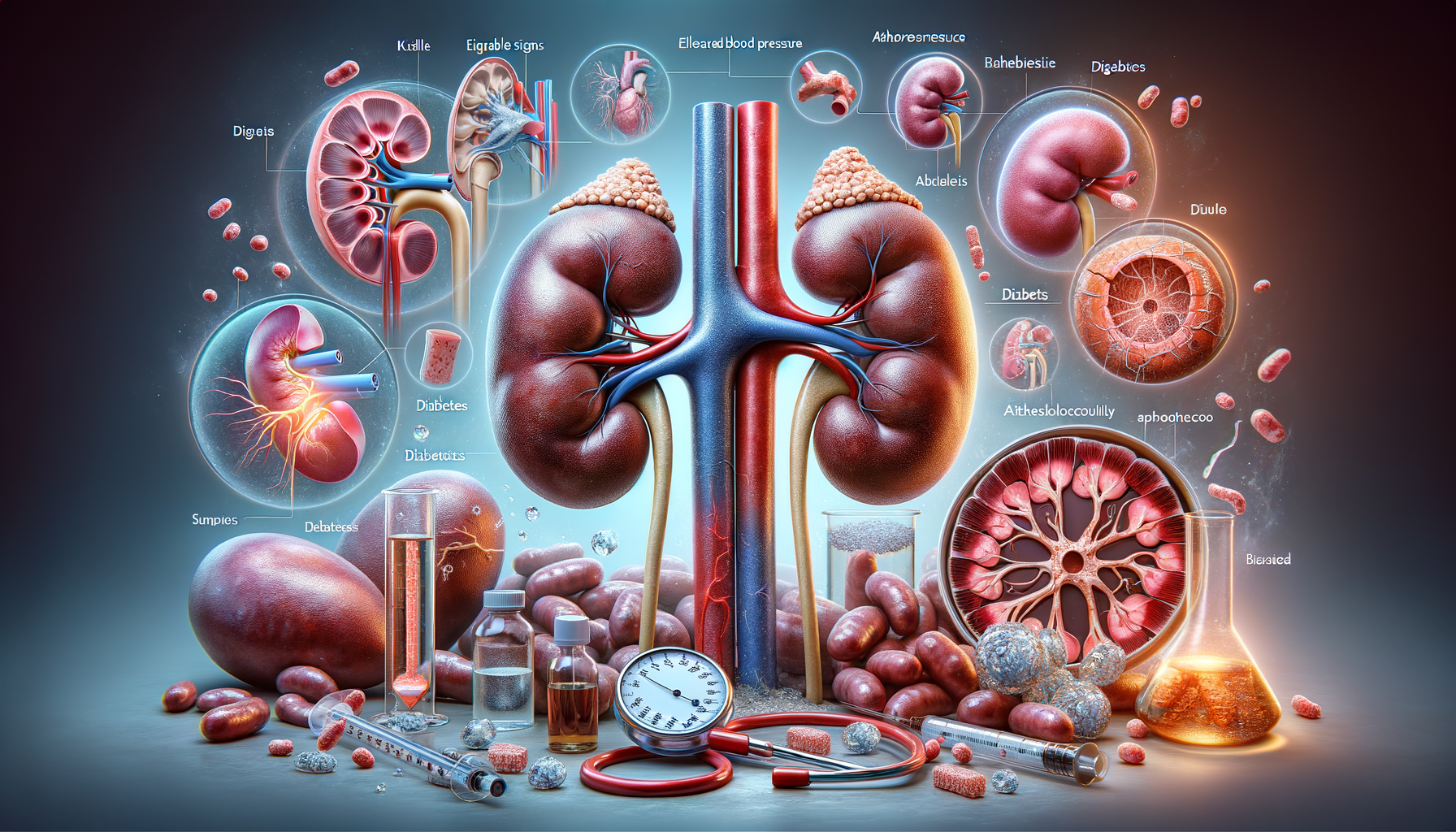
Early Signs of Chronic Kidney Disease: A Guide to Detection, Stages, and Proactive Care
Understanding Chronic Kidney Disease Symptoms
Chronic Kidney Disease (CKD) is a progressive condition where the kidneys lose their functionality over time. This gradual decline can lead to severe health complications if not detected and managed early. The symptoms of CKD often remain unnoticed in the initial stages, which is why it is frequently referred to as a “silent disease.” However, as the condition progresses, several signs become more apparent. These symptoms include fatigue, swelling in the ankles and feet, shortness of breath, and changes in urination patterns. Patients may also experience nausea, vomiting, and a metallic taste in the mouth, which can significantly affect their quality of life. Understanding these symptoms is crucial for early diagnosis and effective management of CKD.
In the later stages of CKD, symptoms become more pronounced and can include severe itching, muscle cramps, and difficulty concentrating. These symptoms result from the accumulation of waste products in the blood, which the kidneys can no longer filter effectively. The progression of symptoms from mild to severe highlights the importance of early detection and intervention. Regular check-ups and monitoring of kidney function can help identify CKD in its early stages, allowing for timely treatment and lifestyle adjustments to slow its progression.
Identifying Early Signs of Kidney Disease
Early detection of kidney disease is vital for preventing further damage and maintaining overall health. The early signs of kidney disease can be subtle and are often mistaken for other conditions. These signs include increased frequency of urination, particularly at night, and the presence of blood in the urine. Patients may also notice foamy urine, which indicates protein leakage, a common early indicator of kidney damage. Additionally, persistent puffiness around the eyes, which may be a sign of protein loss, is another early symptom to watch for.
It’s essential to pay attention to these early signs and seek medical advice if they persist. Routine blood tests and urine analysis can help detect abnormalities in kidney function before symptoms become severe. Healthcare professionals often recommend these tests for individuals with risk factors such as diabetes, hypertension, and a family history of kidney disease. By recognizing these early signs and seeking timely medical intervention, individuals can take proactive steps to protect their kidney health and prevent the progression of CKD.
Exploring Kidney Disease Risk Factors
Understanding the risk factors associated with kidney disease is crucial for prevention and early intervention. Several factors can increase an individual’s risk of developing CKD, including chronic conditions such as diabetes and hypertension. These conditions are leading causes of kidney damage, as high blood sugar and blood pressure levels can strain the kidneys over time. Other risk factors include age, as the likelihood of developing CKD increases with age, and a family history of kidney disease.
Lifestyle choices also play a significant role in kidney health. Smoking, obesity, and a sedentary lifestyle can contribute to the development of CKD. Additionally, overuse of over-the-counter medications such as pain relievers can harm the kidneys. It’s important for individuals at risk to adopt healthy lifestyle habits, such as maintaining a balanced diet, engaging in regular physical activity, and avoiding smoking. By addressing these risk factors, individuals can reduce their chances of developing CKD and improve their overall health outcomes.
The Importance of Regular Screening and Monitoring
Regular screening and monitoring of kidney function are essential components of managing CKD. Early detection through routine check-ups can significantly impact the progression of the disease. Blood tests that measure creatinine levels and the estimated glomerular filtration rate (eGFR) provide valuable insights into kidney health. Urine tests that detect protein or blood can also indicate kidney damage. These tests are particularly important for individuals with risk factors such as diabetes, hypertension, and a family history of kidney disease.
Monitoring kidney function allows healthcare providers to tailor treatment plans and recommend lifestyle changes to slow the progression of CKD. Patients can benefit from dietary modifications, such as reducing salt and protein intake, and managing blood pressure and blood sugar levels. Regular follow-ups with healthcare professionals ensure that any changes in kidney function are promptly addressed, allowing for timely interventions and improved long-term outcomes.
Conclusion: Proactive Care for Kidney Health
Chronic Kidney Disease is a serious condition that often progresses without noticeable symptoms in its early stages. By understanding the symptoms, recognizing early signs, and being aware of risk factors, individuals can take proactive steps to protect their kidney health. Regular screening and monitoring are crucial for early detection and effective management of CKD. Adopting a healthy lifestyle and working closely with healthcare providers can help slow the progression of the disease and improve overall well-being. By staying informed and vigilant, individuals can take control of their kidney health and enhance their quality of life.